In January 2010, in recognition of the seriousness of the invasion of lionfish and its impact on coral reefs and local communities, the 24th General Conference of the International Coral Reef Initiative (ICRI) decided to create an Ad-hoc committee to develop a strategic plan to control lionfish in the Wider Caribbean.

Management and Response Plans
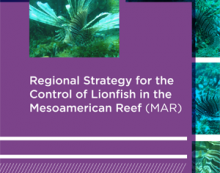 |
 The Indo-Pacific lionfish is rapidly invading the western Atlantic and Caribbean Sea. It is a voracious predator and has the potential to reduce native fish populations, adversely affecting local fisheries and ecosystems. It was first detected in St. Croix, U.S. Virgin Islands in 2009. The potential threat posed by lionfish moved a number of organizations to action. |
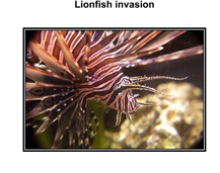 Since the start of the nineties the lionfish (Pterois volitans;) has been spreading at a rapid pace over the Caribbean Sea. The lionfish is originally from the Pacific Ocean and the Red Sea. It has no natural enemies in the Caribbean and reproduces explosively. |
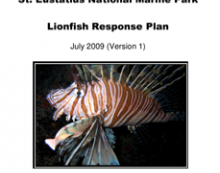 This document, the St. Eustatius National Marine Park Lionfish Response Plan, serves as a reference for the controlling and management of the invasive Indo-Pacific lionfish (Pterois miles and P. volitans complex). Lionfish are expected in St. Eustatius waters in the near future and can have serious detrimental affects to the island’s marine environment, particularly to the populations of both ecologically and economically important fish species. |
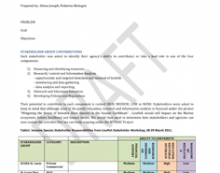 Objectives of outreach and education initiatives are to: |
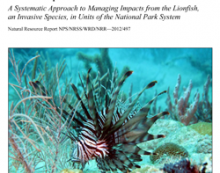 The purpose of this plan is to guide the NPS and its partners in adequately addressing the invasion of the lionfish in the marine waters of National Park System units in the Caribbean, the Gulf of Mexico and the east coast of the United States. The plan describes Service-wide approaches for lionfish management and then guides park managers and staff in developing site-based plans specific to individual park units and conditions. |









